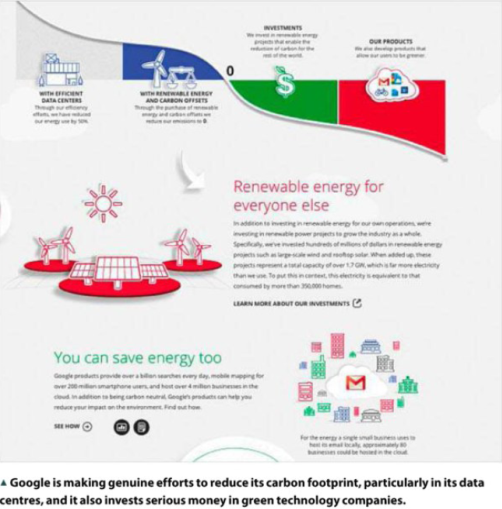Searching
for Google’s future (Part 4)
Smarter search
While Google Ventures is
tacklinh the future, the company continues to look for more ways to make its
products pay today. That includes finding ways to improve its core product:
search. The Google algorithm is regularly tweaked to make spammers’ and scammers’
lives more difficult, but it has much bigger plans. in the near future, expect
Google to offer autonomous search - results that appear before you knew you
might be interested in them.
Google’s head of consumer
products, Marissa Mayer, calls it contextual discovery. As she explained at the
recent LeWeb 10 conference, contextual discovering means “taking a user’s
location as a piece of context for finding what they want without them actually
searching for anything.” Google may not have the userbase of Facebook, but it
has a lot of people using its location-based services - and with half a million Android devices activated every day, it’s putting a
location-aware OS into millions of people’s pockets.
Social networking is a key
part of the equation, which is why Google hasn’t just given up on social
services since it shut Google Buzz. “We really want to get it right this time,”
Mayer told LeWeb. “That said, we’re patient. There’s search, mobile, local, and
social. We’ve got three right. We’re working on the fourth one.” Google+ is
part of that, but there’s also Latitude, its location-based social service, and
Google Maps.
Eric Schmidt explains how
these could fit together. When I walk down the street, I want my smartphone to
be doing searches constantly: “Did you know? ‘Did you know? ‘Did you know?’” he
says. “This notion of autonomous search, to tell me things I didn’t know but am
probably interested in, is the next stage in search.”
Viewed in that light,
acquisitions like this year’s purchase of Pittsburgh Pattern Recognition
(PittPatt), make sense. The firm specialises in computer vision technology that
can identify objects from camera input, and fits well with the Google Goggles
visual search system. Soon, our gadgets might not just know where they are:
they’ll be able to see where they are, and perhaps recognise who else is there.
By combining that data with location-aware services and social networks, Google
will know more about you than you do.

Chinese whispers
Google is also keen to
find a way to operate in China. In 2010, Google publicly closed its Chinese
operation in a row over censorship, effectively turning its back on the world’s
largest market. However, in September 2011, it launched Google Shihui, which
translates as timely benefit’. The site searches deal websites for the best offers,
and lets Google to operate in China without compromising its no-censorship
principles. As Search Engine Watch reports, “The group-buying market has
exploded for China, and there are now approximately 4,000 services in the
country. One particular detail may be a bonus for Google: Groupon isn’t one of
them.”
Google has no plans to
relaunch its standard search engine in China - the authorities won’t budge on
their demands for censorship and Google won’t budge on its desire for
transparency Other services may also face a rocky ride - China blocked Google+
within 24 hours of its launch, and Google claims that Chinese censors have
tried to block Gmail. However, as Chief Financial Officer Patrick Pichette told
the Times, China has 1.2 billion people. For Google to say “we’re going to live
on our mission, but not serve 1.2 billion people” - it just doesn’t work. China
wants Google. It may well do, but not as much as Google wants China’s eyeballs.
New seekers
When co-founder Larry Page
became CEO in January 2011, it represented a significant shift in Google’s
approach. Page wants Google to act more like a small startup than an enormous
corporation, and as a result he’s embarked on a process of streamlining that’s
meant the closure of services including Google Health, Google Powermeter and
the Google Labs experiments. During Google’s annual investors’ call, Page
described his plan as “more wood behind fewer arrows”.
The policy is clearly a
reaction to Apple and Facebook. “Google’s success has been equalled by Apple’s
device successes and Facebook’s power in social media,” Gartner says. “Page
must define, champion and execute on Google’s priorities.” It seems that Page
agrees: during the Google Zeitgeist conference, he was asked: what’s the
biggest threat to Google right now? Without missing a beat, Page replied: “Google”.